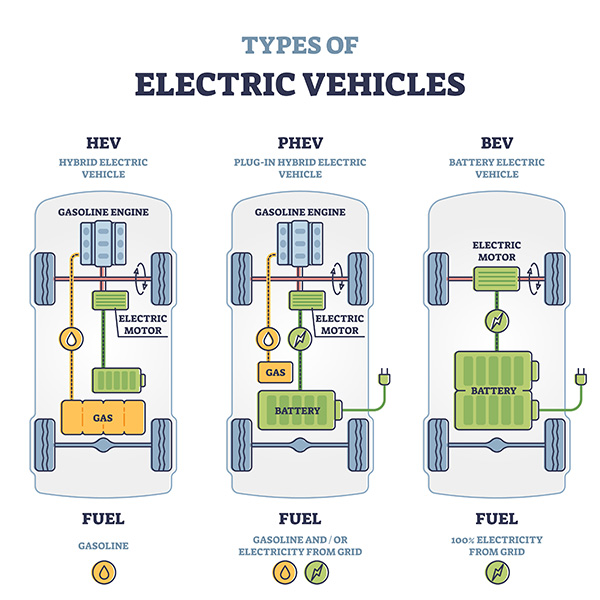
Hybrid vehicles are becoming increasingly popular, sparking interest and curiosity about their unique features. Are they the future of automobiles or just a temporary trend? These cars combine a traditional internal combustion engine with an electric motor, offering distinct advantages and drawbacks. Whether you’re interested in a hybrid for its eco-friendly reputation or want to learn more about its real-world performance, it's important to weigh the pros and cons before making a decision.
The Benefits of Owning a Hybrid Vehicle
One of the biggest reasons drivers are drawn to hybrids is the promise of better fuel efficiency. But that’s not the only perk these cars bring to the table. Let’s dig into the advantages.
Fuel Savings That Add Up
Hybrids shine when it comes to saving money at the pump. By using both an electric motor and a gasoline engine, these vehicles significantly reduce fuel consumption. In stop-and-go traffic, where traditional cars guzzle gas, hybrids switch to electric mode, keeping costs down. Over time, those savings can make a noticeable difference in your budget.
Environmentally Friendly Performance
If you’re looking to reduce your carbon footprint, a hybrid is a step in the right direction. These vehicles produce lower emissions compared to their gas-powered counterparts, making them an attractive choice for eco-conscious drivers. Plus, many hybrids feature regenerative braking systems that recharge the battery while you’re driving, maximizing energy efficiency.
Tax Incentives and Benefits
In many regions, hybrid owners qualify for government incentives, such as tax credits or rebates, which can offset the higher upfront cost of the vehicle. Some areas even offer perks like access to carpool lanes or reduced registration fees.
Quiet and Comfortable Rides
Thanks to their electric motors, hybrids operate more quietly than traditional cars. The transition between electric and gas power is often seamless, offering a calm driving experience that many drivers appreciate.
The Downsides You Should Consider
Of course, no car is perfect, and hybrids are no exception. While they have plenty to offer, there are a few drawbacks to keep in mind.
Higher Purchase Price
One of the biggest hurdles for many drivers is the cost. Hybrids typically come with a higher price tag compared to standard vehicles. This is largely due to the complex technology behind their dual systems. While fuel savings can help offset this expense, it might take years to break even, depending on how much you drive.
Battery Replacement Costs
The battery in a hybrid vehicle isn’t your standard car battery—it’s a high-capacity unit that powers the electric motor. These batteries can last for years, but when they do need replacing, the cost can be significant. Although warranties often cover battery replacements for a set period, it’s something to consider when calculating long-term ownership costs.
Potential Maintenance Complexity
With two systems under the hood—a gasoline engine and an electric motor—hybrids are more complex than traditional cars. While they are generally reliable, repairs can sometimes require specialized knowledge, which may limit your options for service providers.
Not Ideal for All Driving Conditions
Hybrids are most efficient in city driving, where their electric motors can take full advantage of lower speeds and frequent stops. However, on long highway trips, the benefits may diminish as the gasoline engine takes over more of the work. For drivers who frequently travel long distances, a traditional fuel-efficient car might make more sense.
Is a Hybrid Vehicle Right for You
The answer depends on your driving habits, budget, and priorities. If you’re someone who drives mainly in urban areas and values environmental benefits, a hybrid could be a fantastic choice. On the other hand, if upfront cost or long highway drives are concerns, it’s worth exploring other options.
Hybrids are a bridge between traditional cars and fully electric vehicles, offering a mix of familiarity and innovation. As technology continues to evolve, we’re likely to see even more advancements that improve the efficiency and affordability of these vehicles.
Maximizing Your Hybrid Experience
Once you’ve decided on a hybrid, regular maintenance is key to keeping it running at its best. From routine oil changes to monitoring the health of the hybrid battery, staying on top of upkeep ensures your car remains efficient and reliable for years to come.
Looking for reliable hybrid vehicle service? Trust H B Auto & AC to handle all your maintenance and repair needs. Visit us today to experience exceptional service for your hybrid!